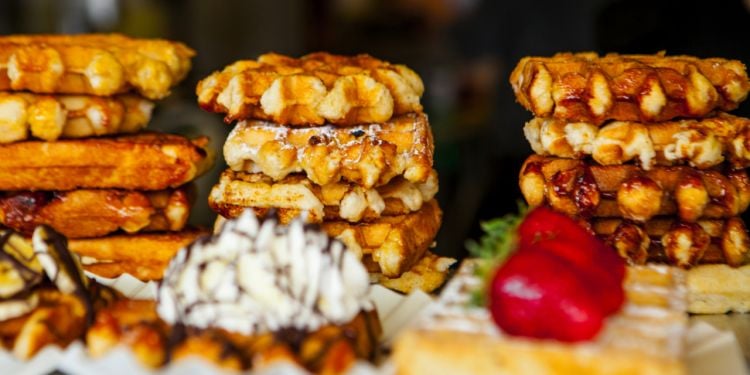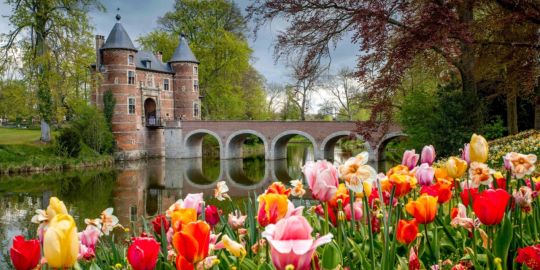Lifestyle in Belgium

Belgium is a diverse country that's very friendly with newcomers. What about its traditions, festivities, and lifestyle? This article shows you what to expect when moving to Belgium.
The rhythm of life in Belgium
Most employees work 8 hours per day and 40 hours a week. Working hours are usually flexible, which makes Belgium alive day and night. Shops and boutiques normally welcome customers from 9:00 or 10:00 am until 7:00 pm (or early evening), from Monday to Saturday. They're only open on Sundays on the weeks right before Christmas. Supermarkets are usually open from 8:00 am until 8:00 pm, from Monday to Saturday, although those in bigger cities may be open later. It's quite normal for shops to close at lunch, especially small shops in small towns.
Nightlife is at the heart of Belgium's lifestyle. Several movie theaters, concert halls, restaurants, and other activities are accessible across the metropolis.
Belgium's traditions
Belgium's cultural agenda is filled with events. Many cultural, sport, and cooking events happen throughout the year across the country.
Take the Binche carnival, for example. It animates the city of Binche and its surroundings a few weeks before Mardi Gras. There's also Belgium's National Day (July 21st), where the country celebrates with many parades. Anvers welcomes many cultural events during the summer, and throughout the year, Belgium hosts music and cinema festivals. At Christmas, the country is animated with Christmas markets, especially in big cities.
Carnivals are part of local folklore: Rhineland and Walloon ones happen during the Mi-Carême week. Those parades are so much part of Belgian's cultural heritage that school holidays depend on them.
In Brussels and Liege, puppet shows are also very famous. Classical plays such as “The Cid” or “The Three Musketeers” are shown.
Daily life habits
Speaking French, German, or Dutch is automatic in most localities, especially in Flanders. Therefore, if you enter a restaurant or have to make a call to services, don't hesitate to say right away which language you prefer.
To greet friends, it's common to kiss each other two or three times on the cheek, especially in Wallonia and Brussels. The Flemish population is less tactile and shyer; they prefer to just shake hands.
As for meals, breakfast is usually generous, with salty and sweet dishes. Lunch (called "dîner" in Belgium) is light and on the go. Lunch breaks are usually very quick. As for “supper” (evening meal), it's usually taken around 7:00 pm. Some restaurants close after 9:00 pm.
Belgian cuisine
Far from clichés dedicated to just beers and fries, Belgian cuisine is actually very rich. Indeed, Belgium inherited a very refined cuisine, especially in Flanders. Some 80 cheese varieties are to be found in Flanders. The region's savoir-faire is unprecedented when it comes to chocolate and pastries.
The most famous dishes in Belgium are Filet Americain, the Salade Liegeoise, and Flemish carbonade. You can stop by the French-fry truck at snack time. If you like sweet things, you'll love the Liege waffle.
As for drinks, Belgium is undeniably one of the biggest beer producers. There are more than 3,000 different beers found across 200 breweries. They offer different tastes, some more or less unique. The Flat Country is also a wine producer. The best Belgian wines are available in the finest restaurants and in supermarkets.
Belgian calendar
Most Belgian holidays are national ones, with some regional and communal ones. They depend on the traditions of the cities, towns, or regions. Some are given only to civil servants. This is the case for the Iris Festival day in May, or the commemoration of the Battle of the Golden Spurs in Flanders.
The most popular national holidays are New Year's Eve, Easter Monday, Labor Day, National Day, Assumption Day, All Saints' Day, Armistice Day, and Christmas Day. Among the less renowned ones are Carnival, and Mother's and Father's Day. They're all national holidays too.
In total, there are 10 legal and recognized national holidays throughout the year. In addition, there are a few nationally celebrated ones but aren't guaranteed off for work.









